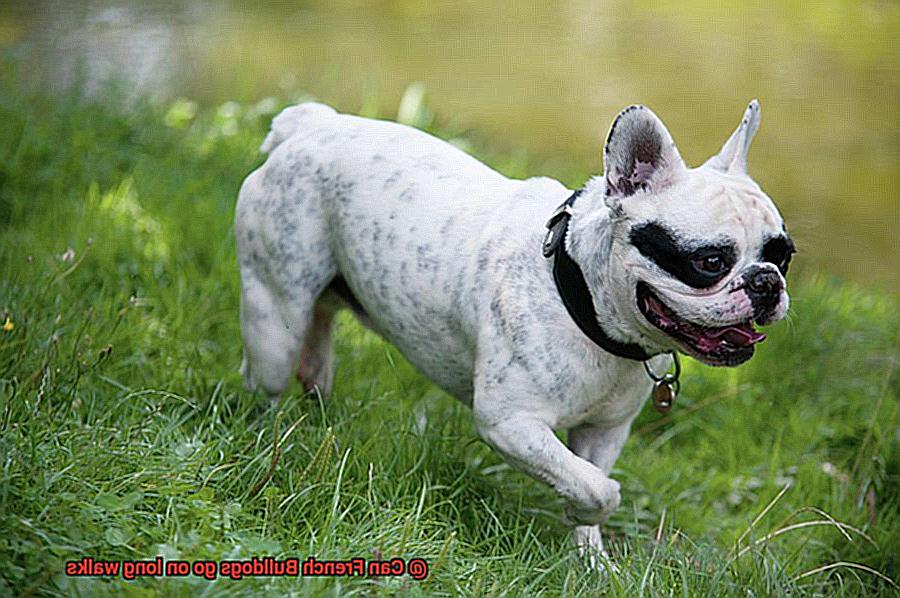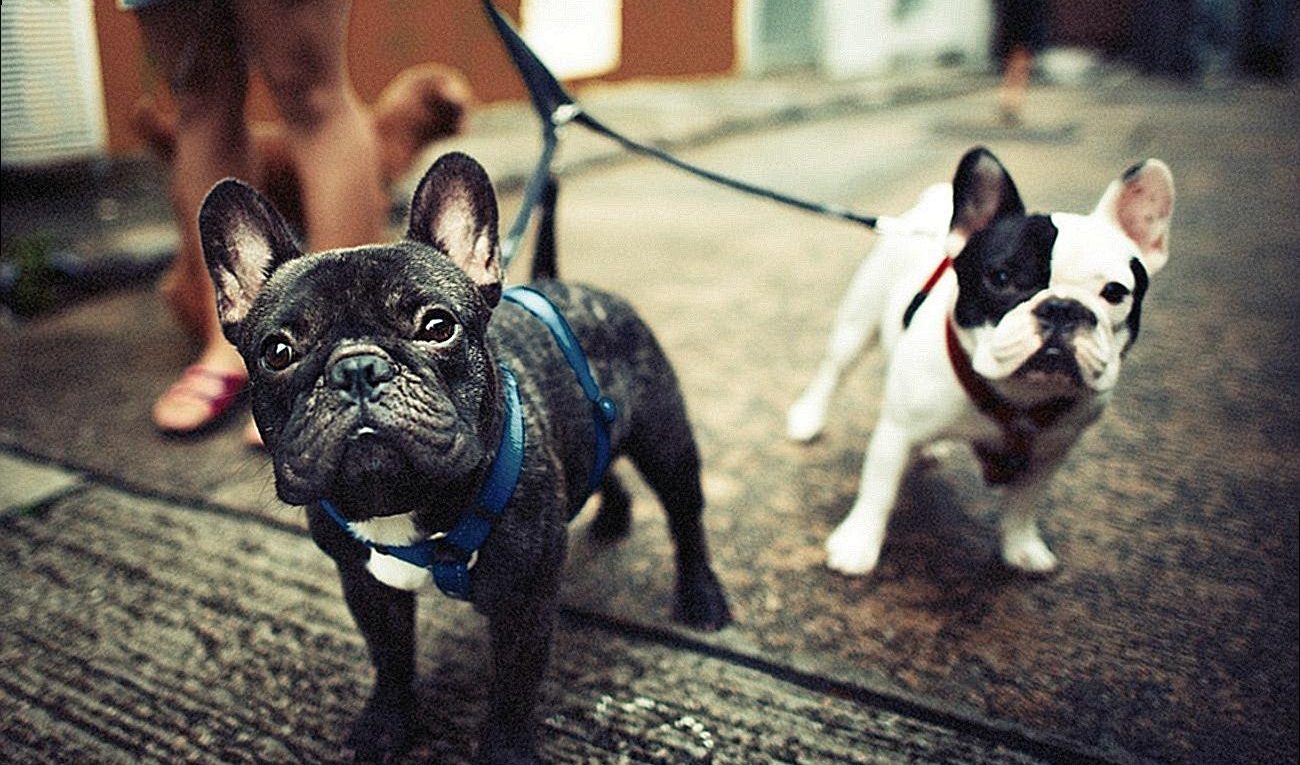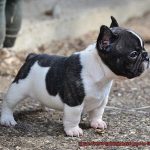Can French Bulldogs go on long walks?
Whether you’re already smitten with these lovable, bat-eared buddies or thinking about bringing one into your life, I bet you’ve asked yourself this burning question: can French Bulldogs handle those marathon walks that make your legs ache so good? You know, those long jaunts that leave you feeling refreshed and rejuvenated. Well, let me tell you, my fellow Frenchie lovers, there’s been some serious misinformation floating around about our stocky pals and their ability to strut their stuff on lengthier treks.
But fret not. In this blog post, we’re going to dig deep and uncover the truth about French Bulldogs and their walking prowess. We’ll get down and dirty with all the nitty-gritty details – from their unique body structure to their oh-so-special respiratory system. And don’t worry, we won’t leave you hanging; we’ll also spill the beans on what factors determine whether your furry friend is up for an epic hiking adventure or a leisurely stroll through the park. So sit tight and get ready to unlock the secrets of French Bulldog walking escapades.
So, can French Bulldogs go on long walks? Let’s find out together.
Understanding French Bulldog Stamina
Contents
Their stamina may not match that of more athletic breeds due to their unique physiology. In this article, we will explore how French Bulldog owners can ensure their pets get enough exercise without overexertion, taking into account their limited capacity for intense physical activity and brachycephalic syndrome.
Understanding French Bulldog Stamina:
- Brachycephalic Syndrome: French Bulldogs’ shortened airways make it harder for them to take in enough oxygen during exercise, leading to fatigue and overheating. It’s crucial to be mindful of this condition and adjust exercise routines accordingly.
- Gradual Build-up: Start with short walks and slowly increase the duration and intensity over time to improve your French Bulldog’s endurance. Pay attention to signs of exhaustion or distress, providing breaks and water as needed.
- Temperature Regulation: French Bulldogs are more prone to overheating due to their brachycephalic features and short coats. Exercise them during cooler parts of the day, provide shade and water during outdoor activities, and watch for signs of overheating, such as excessive panting or lethargy.
- Individual Differences: Each French Bulldog is unique, with varying levels of stamina influenced by genetics, overall health, and conditioning. Consult with a veterinarian to determine your dog’s specific exercise needs.
Exercise Ideas:
- Leisurely Walks: While they may not excel at long runs or hikes, French Bulldogs can still enjoy moderate exercise through leisurely walks. Adjust the distance and pace according to your dog’s capabilities.
- Interactive Games: Engage your French Bulldog in interactive games like hide-and-seek or fetch, which provide mental stimulation while keeping physical exertion within manageable limits.
- Puzzle Toys: Keep your French Bulldog mentally stimulated with puzzle toys that challenge their problem-solving skills without requiring excessive physical effort.
Weather Considerations for Long Walks
Planning a long walk with your French Bulldog? Before you hit the pavement, it’s important to consider the weather conditions to ensure a safe and enjoyable experience for both you and your furry friend. French Bulldogs are known for their sensitivity to extreme temperatures, so here are some expert tips to keep in mind:
Hot Weather Tips:
- Time it right: Avoid walking your French Bulldog during the hottest parts of the day, especially in the summer months. Opt for early morning or late evening walks when temperatures are cooler.
- Check the pavement temperature: Before stepping out, touch the pavement with your hand. If it’s too hot for your hand, it’s too hot for your dog’s paws. Use booties or choose shaded routes to protect their sensitive feet.
- Hydration is key: Bring plenty of water for both yourself and your dog. Provide frequent water breaks during the walk to prevent dehydration and heat exhaustion.
- Take it easy: Avoid strenuous exercise in hot weather. French Bulldogs have difficulty regulating their body temperature due to their short snouts, so take frequent breaks in shaded areas.
Cold Weather Tips:
- Bundle up: French Bulldogs are not well-suited for extremely cold temperatures. Dress them in a warm sweater or coat to keep them cozy and protected from the cold.
- Limit the length of walks: Shorten your walks in cold weather to prevent your dog from getting chilled. Pay attention to signs of discomfort such as shivering or lifting their paws off the ground.
- Watch out for wind chill: Wind can make the temperature feel even colder, so be cautious when walking your French Bulldog in windy conditions. Consider using booties to protect their paws.
General Tips:
- Monitor closely: Keep a close eye on your French Bulldog during walks in extreme weather conditions. Watch for signs of distress such as excessive panting, lethargy, or difficulty breathing.
- Individual needs: Remember that every French Bulldog is unique and may have different tolerances to weather conditions. Adjust your walking routine according to your dog’s specific needs.
- Consult with your vet: If you have concerns about weather considerations for your French Bulldog, it’s always a good idea to consult with your veterinarian for personalized advice.
Unique Body Structure of French Bulldogs
French Bulldogs, with their adorable flat faces and compact bodies, have a unique body structure that sets them apart from other dog breeds. While they may not be built for long walks like some other breeds, understanding their physical limitations is essential to ensure their well-being and enjoyment during outdoor activities. In this article, we will explore the distinct body structure of French Bulldogs and how it affects their ability to go on long walks.
Brachycephalic Skull Shape:
French Bulldogs’ short and flat faces, known as brachycephalic skull shape, are undeniably cute. However, this feature can make it challenging for them to breathe efficiently, especially during physical exertion. Their narrow nostrils and elongated soft palate restrict airflow and can lead to respiratory distress and overheating.
Compact and Muscular Body Structure:
French Bulldogs have a compact, muscular body structure that makes them sturdy and strong. However, their relatively short legs and heavy build are not designed for endurance. Long distances may be more challenging for them compared to breeds built for activities like running or hiking.
Susceptibility to Joint Issues:
Due to their stocky build, French Bulldogs are more prone to joint problems such as hip dysplasia or intervertebral disc disease. These conditions can cause pain and discomfort during physical activities, especially if the dog is overweight or not adequately conditioned.
Temperature Regulation Challenges:
French Bulldogs have a harder time regulating their body temperature due to their shortened snouts. This makes them more susceptible to heatstroke or heat exhaustion, especially in hot weather. It is crucial to be mindful of their temperature requirements and take necessary precautions during walks in extreme weather conditions.
Gradually Building Up Your Dog’s Stamina
French Bulldogs may not be the most athletic breed, but with proper training and care, they can gradually build up their stamina and enjoy longer walks. In this guide, we will explore the importance of gradually increasing your French Bulldog’s endurance and incorporating variety into their exercise routine. So, grab your leash, put on your walking shoes, and let’s get started.
Start Slow and Assess Fitness Level:
- Begin by taking your French Bulldog on short walks around the neighborhood.
- Observe their breathing rate, body language, and overall energy levels during these initial walks.
- Pay attention to signs of exhaustion or distress and adjust the intensity accordingly.
Gradually Increase Distance and Duration:
- Once your French Bulldog is comfortable with shorter walks, start increasing the distance and duration gradually.
- Add an extra five minutes to each walk every few days to prevent overexertion or injury.
- Consistency is key – aim for at least three to four walks per week to develop endurance over time.
Incorporate Variety:
- To further strengthen your French Bulldog’s muscles and cardiovascular system, incorporate short bursts of more intense activity during the walk.
- Try jogging for a few minutes or playing a game of fetch to add variety and challenge their stamina.
Listen to Your Dog’s Cues:
- Understand that not all French Bulldogs will achieve the same level of stamina due to factors like age, health, and individual differences.
- Pay close attention to your dog’s cues and adjust their exercise routine accordingly.
- If you notice any signs of discomfort or fatigue, take breaks or reduce the intensity of the activity.
Consult with Your Veterinarian:
- Before starting any new exercise regimen for your French Bulldog, consult with your veterinarian.
- They can provide specific guidance based on your dog’s unique needs and ensure they are healthy enough for increased physical activity.
Benefits of Regular Exercise for French Bulldogs
Regular exercise plays a vital role in maintaining their physical and mental health, ensuring they live a happy and fulfilling life. In this blog post, we will explore the key benefits of regular exercise for French Bulldogs and why it should be an essential part of their daily routine.
Physical Health:
Regular exercise is crucial for keeping your French Bulldog in top shape. These adorable pups have a stocky build and are prone to weight gain. Going on long walks helps prevent obesity-related health issues such as joint problems, heart disease, and diabetes. Additionally, exercise strengthens their muscles, improves cardiovascular health, and boosts overall stamina.
Mental Stimulation:
French Bulldogs are intelligent dogs that thrive on mental stimulation. Long walks provide them with opportunities to explore new smells, sights, and sounds, keeping their minds engaged and stimulated. This mental stimulation helps prevent behavioral problems like excessive barking or destructive chewing.
Socialization:
Taking your French Bulldog on walks exposes them to different environments and allows them to interact with other dogs and people. This socialization is crucial for their overall well-being, helping them develop good manners and proper behavior around unfamiliar animals and individuals. It also boosts their confidence in various settings.
Bonding Time:
Walking with your French Bulldog offers a chance for you to bond with your pet. Dogs love spending quality time with their owners, and going on walks together strengthens the bond between you. It’s an opportunity to communicate, understand each other better, and enjoy the outdoors together.
Energy Release:
Despite their laid-back nature, French Bulldogs have bursts of energy that need to be released in a controlled manner. Regular walks help burn off excess energy, leaving them calmer and more relaxed at home. This can prevent behavioral problems caused by restlessness or agitation.
Weight Management:
Preventing weight gain is crucial for French Bulldogs. Regular walks help keep their weight in check, reducing the risk of obesity-related health problems such as joint issues and respiratory difficulties. It ensures they maintain a healthy body condition and overall well-being.
Improved Digestion:
Exercise stimulates the digestive system of French Bulldogs, promoting healthy digestion. Going on walks after meals aids in digestion, regulates bowel movements, and prevents constipation or other digestive issues.
Tips to Ensure Your French Bulldog Can Handle Long Walks
While French Bulldogs may not be known for their endurance, with proper care and preparation, they can enjoy and benefit from longer walks. Here are some tips to ensure your French Bulldog can handle long walks safely and comfortably.
Start slow and build up stamina

Just like humans, dogs need to gradually increase their endurance. Begin with shorter walks and gradually increase the duration and intensity over time. This allows their bodies to adapt and build stamina without overexertion.
Monitor their health
Regular vet check-ups are crucial to ensure your Frenchie is in good overall health. They can identify any underlying issues that may affect their ability to handle long walks. Pay special attention to their breathing and heart health, as Frenchies are prone to respiratory issues.
Consider weather conditions
French Bulldogs are sensitive to extreme temperatures, especially heat, due to their short snouts. Avoid walking them during the hottest parts of the day and provide shade and water breaks as needed. Remember, hydration is key.
Choose suitable walking routes
Opt for flat and even surfaces to prevent unnecessary strain on their joints and muscles. Avoid steep inclines or rough terrains that may cause discomfort or injury.
Use proper walking gear
Invest in a well-fitted harness instead of a collar to reduce strain on their necks. Comfortable shoes or boots can protect their sensitive paw pads from hot pavement or rough surfaces.
Listen to your Frenchie
Pay attention to their body language during the walk. If they show signs of fatigue such as excessive panting or lagging behind, give them a break or end the walk altogether. Pushing them beyond their limits can lead to exhaustion or heat stroke.
Remember, not all French Bulldogs are built the same, and some may have lower endurance levels than others. Always prioritize your Frenchie’s comfort and well-being over your desire for a long walk. If they simply can’t handle extended periods of physical activity, consider incorporating other forms of exercise into their routine, such as swimming or mental stimulation activities.
iMpXeyX8VT4″ >
Conclusion
In conclusion, French Bulldogs are capable of going on long walks, but it’s important to consider various factors that can affect their ability to handle prolonged physical activity. Understanding their unique physiology and limitations is crucial for ensuring their safety and well-being during these walks.
With their brachycephalic skull shape, French Bulldogs may find it more challenging to breathe efficiently. Their shortened airways and flat faces restrict airflow, leading to fatigue and overheating. It is vital to be mindful of this condition and make adjustments to exercise routines accordingly.
To gradually build up your French Bulldog’s stamina, start with short walks and slowly increase the duration and intensity over time. Pay close attention to signs of exhaustion or distress, providing necessary breaks and offering water as needed. Remember that each French Bulldog is unique, so consulting with a veterinarian will help determine your dog’s specific exercise needs.
When planning long walks with your French Bulldog, weather considerations are paramount. They are particularly sensitive to extreme temperatures, especially heat. Avoid walking them during the hottest parts of the day, check pavement temperature before stepping out, provide shade and water breaks, and be vigilant for signs of overheating.
The distinctive body structure of French Bulldogs also impacts their ability to go on long walks. Their brachycephalic skull shape, compact body structure, susceptibility to joint issues, and challenges in temperature regulation should all be taken into account when determining the duration and intensity of their walks.
Regular exercise offers numerous benefits for French Bulldogs’ physical and mental health. It helps maintain their weight, strengthens muscles, provides mental stimulation, aids in socialization, strengthens the bond between owner and dog, releases energy in a controlled manner, improves digestion, and promotes overall well-being.
To ensure that your French Bulldog can handle long walks safely and comfortably:
- Start slow and gradually build up their stamina.
- Monitor their health through regular vet check-ups.
- Consider weather conditions and adjust walking times accordingly.
- Choose suitable walking routes that are flat and even.
- Use proper walking gear, such as a well-fitted harness and comfortable shoes or boots.
- Pay attention to your Frenchie’s cues and give them breaks or end the walk if they show signs of fatigue.
Remember, not all French Bulldogs are created equal, and some may have lower endurance levels than others. Always prioritize your Frenchie’s comfort and well-being during walks.




